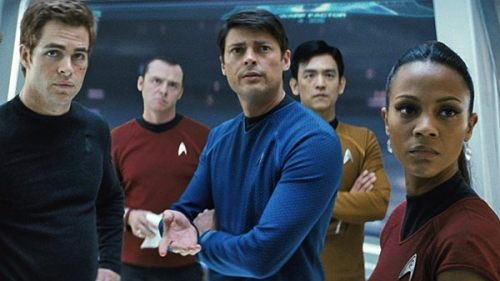LUCY IN THE SKY Review: Flat Drama Of A Space Case
Yes, this is the movie (now in limited release, going wider on Friday) based on Lisa Nowak, the real-life astronaut who took a long drive on Planet Earth to assault and/or kidnap an extramarital romantic rival, allegedly wearing adult diapers during the trip, yet the film omits that (much-contested) detail. Let’s get that out of the way now, because there are other, more important things lacking in Lucy in the Sky—not least, in the final analysis, the dramatic point of telling this story.
Early in the film, the words “Inspired by real events” fade up on screen slooooowly, indicating that this is going to be a meaningful, in-depth explication of those circumstances. Instead, director Noah Hawley (of TV’s Fargo and Legion, who rewrote the Black List script originally titled Pale Blue Dot by Brian C. Brown and Elliott DiGuiseppi) uses Nowak’s story only as a jumping-off point; tellingly, Nowak is never mentioned by name, nor is her saga detailed, in the press notes. She has been reimagined as Lucy Cola (Natalie Portman), who has successfully struggled to make it in the male-dominated world of NASA, securing a place for herself on the space shuttle Discovery. Early on, we see her floating in the vast expanse of space, gazing upon Earth from a remarkable vantage point very few people will ever enjoy.
It is the filmmakers’ thesis that this glorious experience is a transformative one for Lucy, who finds it hard to readjust to the comparative banalities of her existence back on Earth. These include her marriage to her husband Drew (Dan Stevens, playing against type as a well-meaning but rather dull NASA publicist; he has little more to say to Lucy upon her return from the cosmos than a repeated “I missed you”). So when handsome, womanizing astronaut Mark Goodwin (Jon Hamm) turns his attentions her way, Lucy can’t help but respond, and the affair, combined with her growing jealousy and suspicions of an up-and-coming colleague Erin Eccles (Zazie Beetz), eventually lead Lucy to lose herself and set out on her obsessive all-night drive.
Her destination has been altered from Nowak’s (San Diego instead of Orlando), and the movie adds a passenger who didn’t exist in real life: Lucy’s teenage niece Blue Iris (Pearl Amanda Dickson), whom Lucy and Drew are looking after in her father’s absence. Apparently Blue Iris is intended as an audience surrogate, a window through which to view Lucy as she continues on her downward spiral—which suggests a lack of trust in Lucy’s characterization to engage the audience along her unfortunate journey. Portman gives her typical all to the role, doing her best to invest shading and dimension into a woman who’s more of a dramatic concept than a fully written, fleshed-out person. We get the surface notes—Lucy is professionally super-driven (to distraction) and yet vulnerable to personal foibles—without getting under her skin.
Hawley attempts to express Lucy’s constantly shifting state of mind by playing with the aspect ratio—super-widescreen when she’s in space, more constrained framing when she’s feeling earthbound pressures, at one point even restricting the image to one side of the screen. This comes off instead as a distraction, a gimmick substituting for depth—and that goes double for a truly unfortunate moment in which Mark is seen alone in bed, repeatedly watching TV footage of the Challenger explosion. Instead of this kind of gratuitous shorthand (there’s also repeated chrysalis-to-butterfly imagery—transformation, get it?), more attention should have been paid to bestowing true inner life to the supporting characters. Particularly Erin, whose interactions with Lucy could have made truly pertinent points about female solidarity in a man’s-world milieu—and the vulnerabilities of such relationships—rather than relegating Beetz to one of two functional parts in the same week whose purpose is largely to motivate the mania of the protagonist. Hawley and his collaborators clearly intended Lucy in the Sky to soar above the salacious and sensationalistic sides of the true case, yet they haven’t found compelling enough ways to flesh out their own interpretation.



